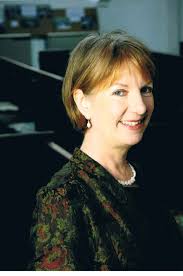ROYAL FESTIVAL HALL 21 November 2017
A large audience gathered for this latest instalment in the series which deliberately presents different aspects of the organ repertoire by performers who are experts in their particular field. For this concert Anne Page brought her experience and research to present an interpretation of the complete Art of Fugue by JS Bach.
On this occasion I took advantage of the pre-concert talk in which Anne Page was in conversation
with the curator of the RFH organ, William McVicker, about the work and different opinions about what instrument it was written for and the enigmatic way in which the published work ends. This was a fascinating talk, which could have gone on much longer, with excellent musical illustrations from the RFH’s organ scholar David Thomas. It certainly helped me in my appreciation of the music which followed.
Throughout the evening Anne Page demonstrated her commitment and understanding of this music and its relation to other genres, notably the French style of organ music from the likes of de Grigny, whom Bach admired. Her well chosen registrations and her decision to emphasise different interpretations to group the movements made for a very cohesive and immersive experience. The ease with which lines were performed on the pedals was very impressive. Clear delineation of voices (by registration) and careful articulation in each fugue made it possible to appreciate the structures and to attempt to follow some of the thematic material, although at times this was not easy.
The craftsmanship, mathematical genius and beauty of this music is without doubt. This organ is a wonderful vehicle for it. Anne Page’s knowledge, commitment, concentration and overall musicianship was impressive throughout. I found myself, at times, completely drawn in by the music. Unfortunately for this listener the overall experience was just too much. As the programme notes mentioned, the composer would not have envisaged a complete performance such as this, and for me, and I suspect others, despite wanting to enjoy the totality of this music, it didn’t really work.
Perhaps elements of the talk could have been interspersed with the music, or some contrasting music inserted partway through. I certainly would have welcomed some relief from what became a rather cerebral and overwhelming experience. After the concluding “unfinished” movement (with a realised ending by Paul Binski) the evening ended with a beautifully understated rendition of Bach’s last composition, dictated during his final illness, Vor deinen Thron tret ich hiermit.
The next concert in the series is on 26th February – a varied programme from Daniel Cook.
Stephen Page

